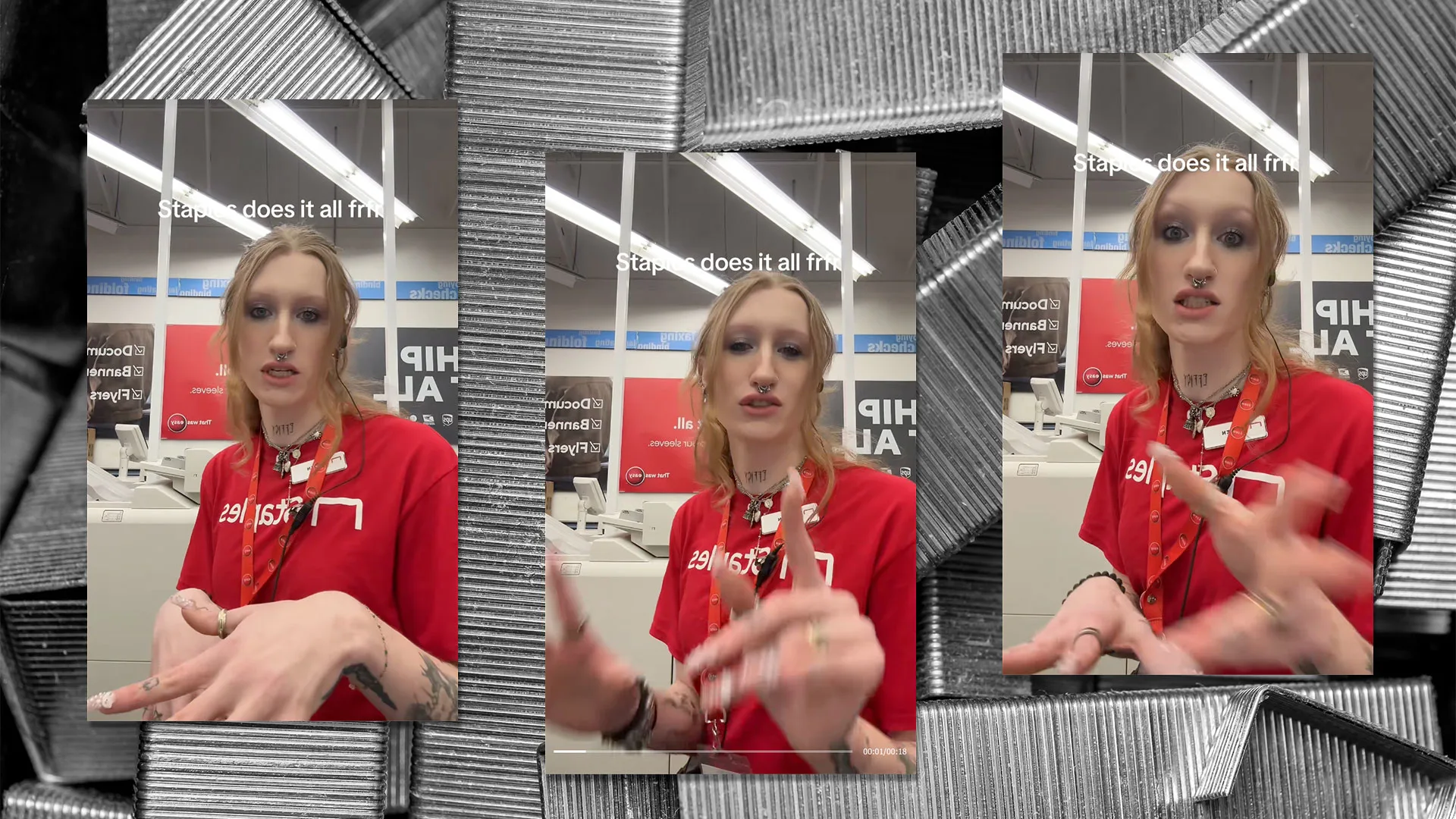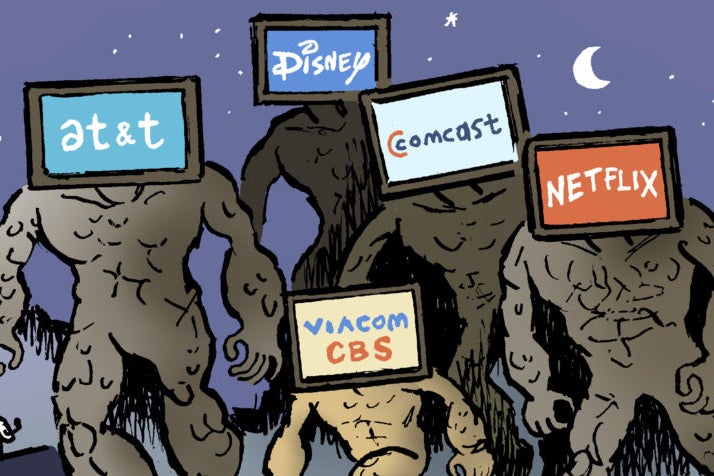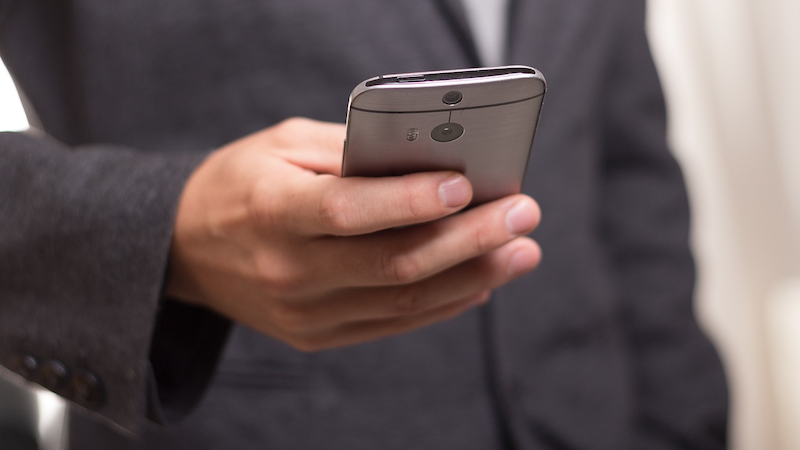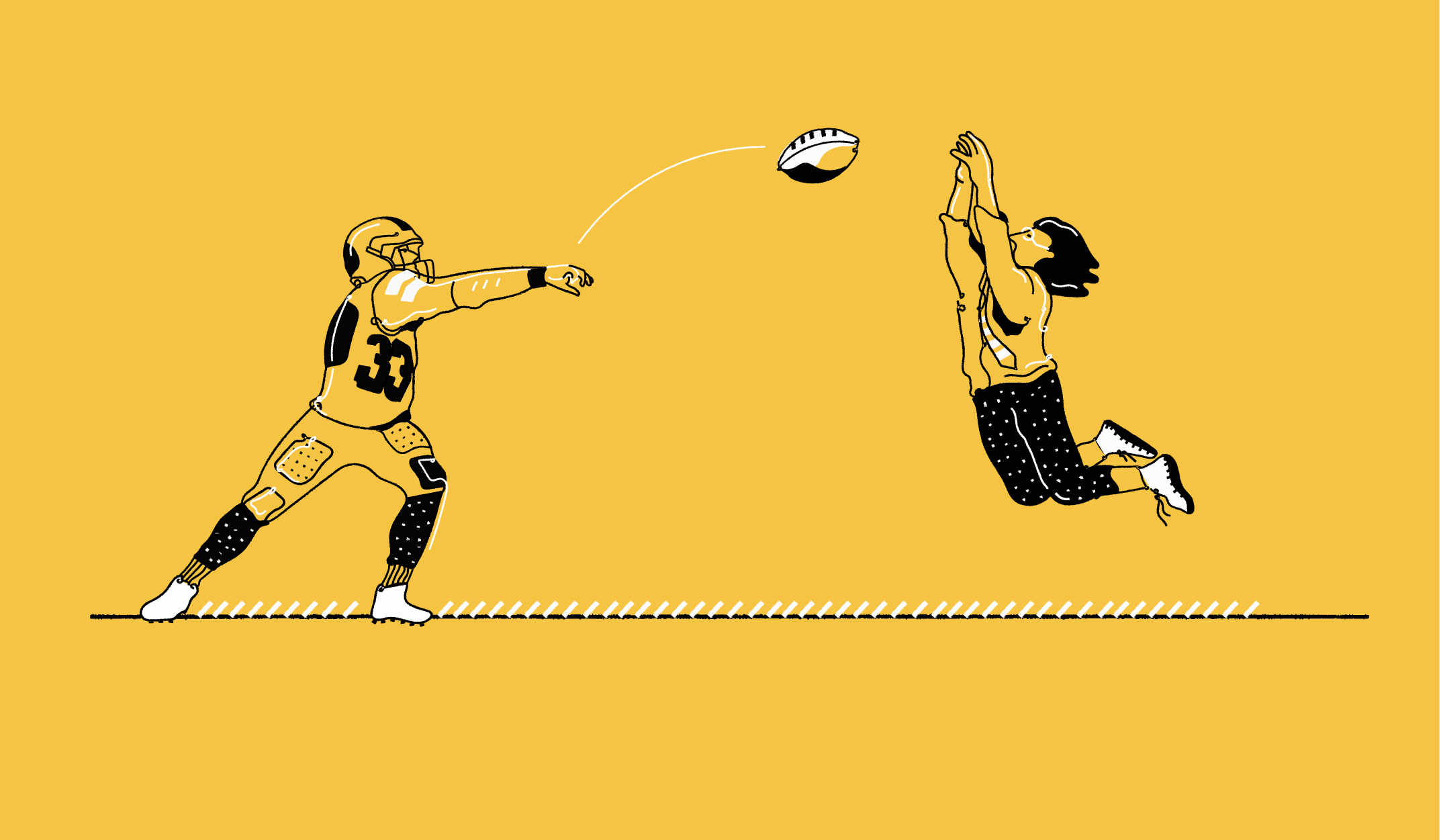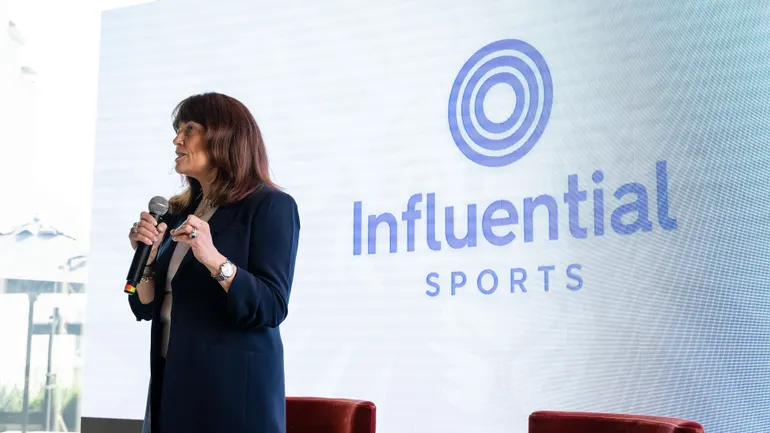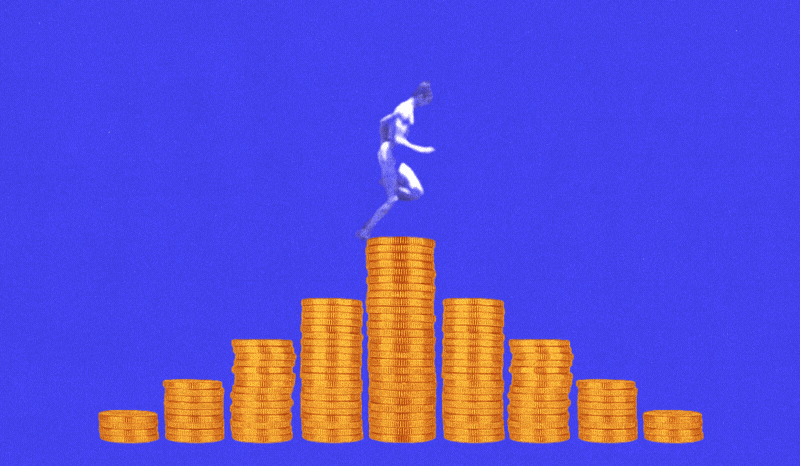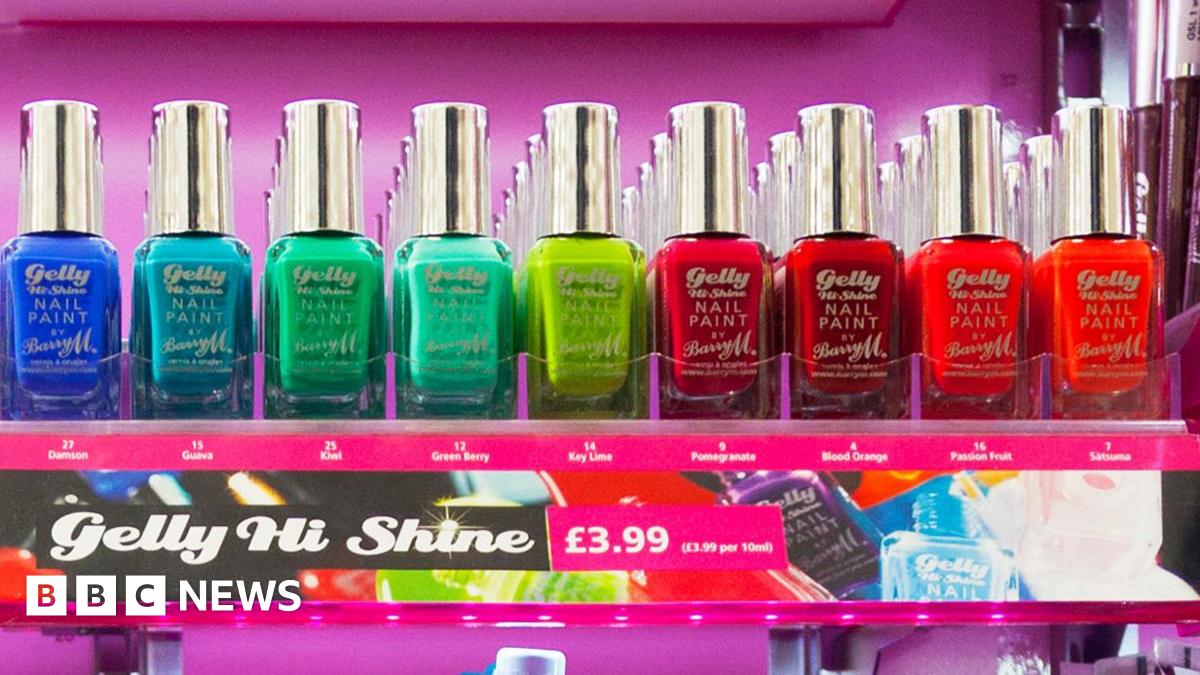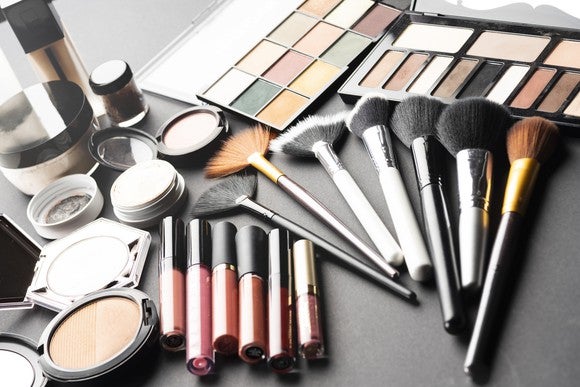#influencer-marketing
#influencer-marketing
[ follow ]
#creator-economy #social-media #tiktok #authenticity #beauty-industry #sports-marketing #consumer-trust
fromFood & Beverage Magazine
2 days agoInfluencer Collaborations in Foodservice
Food influencers, in particular, have become pivotal in shaping consumer behavior and preferences within the foodservice industry. With their ability to reach vast audiences, these influencers offer restaurants and brands unique collaboration opportunities that can drive engagement and boost sales. Why Collaborate with Food Influencers? Collaborating with influencers can significantly enhance your restaurant's visibility and credibility. Here are a few reasons to consider: Social media post of a restaurant collaboration with an influencer
Food & drink
Marketing
fromEntrepreneur
3 days agoThis Dad's Side Hustle Led to $80 Million a Year: 'My Only Startup Costs Were a Laptop and Internet'
Ted Raad built an influencer marketing agency representing 130+ creators and nearly 100 employees, generating roughly $80 million annually through transparent, creator-first systems.
fromWorld of Reel
6 years agoWarner Bros. Paid 2,000+ Social Media Influencers to "Post Nice Things" About 'Wuthering Heights' - World of Reel
Remember when "Wuthering Heights" first screened and all those glowing early reactions flooded social media-with even one "critic" calling it a "God-tier classic"? It turns out that was a carefully calibrated mirage concocted by Warner Bros. A report claims that "Wuthering Heights" had "one of the biggest global marketing juggernauts the world has ever seen." Hyperbole? Maybe. But what do you make of the claim that "almost 2,000 social media influencers were paid by Warners to post nice things about the film"?
Film
Marketing
fromDigiday
5 days ago'Creators as the new storytellers': Over 10,000 apply to be part of Dick's Sporting Goods creator program
Dick's Sporting Goods is rapidly expanding its Varsity Team ambassador program to amplify creator-driven content, cultural engagement, and event-focused social media storytelling.
fromenglish.elpais.com
5 days agoWhat is media impact value, the algorithm the fashion industry is fixated on
Not just any algorithm, mind you, but the most devilish metric devised to date. Because it finally translates the old publicity strategy of fame once governed by unquantifiable guesswork into money. No, it isn't (black) magic, just computerized math: by analyzing and comparing quantitative and qualitative data, the program in question calculates and assigns an economic value to these star appearances based on their public performance.
Marketing tech
fromBusiness Matters
6 days agoThe Ultimate Guide to Calculating Real Influencer Campaign ROI
The campaign can look busy on the surface. Views are high, comments are positive, and the creators are asking when the next deal is coming. Then the CFO asks one question: what did we get back in revenue, and how do you know it came from this spend? When the answer leans on Earned Media Value (EMV) only, engagement rate, or brand awareness, the conversation usually ends with budget pressure.
Marketing
Social media marketing
fromwww.nature.com
1 week agoEvaluating celebrity influence on brand attention, emotion, and memory
Celebrity and influencer endorsements shape consumer attitudes, credibility, engagement, and purchase intentions, with effectiveness driven by authenticity, endorser–brand fit, attractiveness, and market context.
fromDoggodigest
1 week agoThe Growth of Dog Influencers on Social Media in America - Doggodigest
In today's digital age, where every scroll brings a new sensation, a surprising trend has emerged: dog influencers. These furry personalities are taking social media by storm, captivating hearts and fetching likes in droves. This phenomenon isn't just about cute photos; it's a testament to the power of community and the universal love for our four-legged friends. Let's dive into the world of dog influencers and explore how they've become a staple in American social media culture.
Pets
Marketing
fromokmagazine.com
2 weeks agoThe Dubai Fashion Brand That Kept Showing Up and the Creator Strategy Behind It
Yamammi built a dense creator-driven UGC campaign to make Dubai-born Azari omnipresent by prioritizing aesthetic fit, relevance, and scalable native content over celebrity endorsements.
Marketing tech
fromwww.cnbc.com
2 weeks agoGoogle and Microsoft offer lucrative deals to promote AI, but even $500,000 won't sway some creators
AI companies recruit social media influencers and spend heavily on ads to acquire users and promote generative AI services, paying creators hundreds of thousands.
Social media marketing
fromThe Drum
2 weeks agoHow to harness user generated content (UGC) to build your brand
User Generated Content increases brand authenticity and engagement by letting real customers create trusted, relatable content that influences purchase decisions more than traditional advertising.
fromEurekAlert!
2 weeks ago'Masculinity crisis': Influencers on social media promote low testosterone to young men, study finds
Young men are being encouraged to undergo testosterone testing and start hormone therapy through Instagram and TikTok content that promotes unproven health claims while downplaying medical risks, a new international study has found. The study was done at the University of Sydney's Faculty of Medicine and Health, and led by Emma Grundtvig Gram, a visiting PhD student from the University of Copenhagen.
fromThe Drum
2 weeks agoSnapchat continues user grab with first global ad push around 'Real Friends'
Snapchat is marching on with its hunt for new users, investing in its first global ad campaign that positions it as an app where 'Real Friends' can connect. The push, launched on International Friendship Day, follows on from a bumper second quarter for Snap in which it attracted 13 million users, well above the 2 million forecast by analysts and a figure that eased investor and advertiser jitters significantly following years of sluggish growth.
Marketing
fromInc
2 weeks agoHow Much Influencer Marketing Really Costs in 2026-and Why $50,000 Is the Magic Number
That $50,000 goes toward turning a brand's "educated guess" into "metrics they're confident about," Titus says. Here's how that test and learn process typically works on Faved: A beauty brand, for example, will typically spend their first $15,000 to $20,000 on 10 differently priced collaborations with beauty or lifestyle influencers whose audiences fit their ideal customer profile. During this step, he adds, the brand's only goal is to figure out which influencer's content drove the most sales at the lowest cost.
Marketing
fromInc
3 weeks agoHow Much Does It Cost to Hire an Influencer in 2026? Experts Share How They Estimate Prices
Influencers are, at the core, independent contractors. They build their own followings, set their own hours, and charge their own rates-which means the cost of working with one can vary widely. Marketers and business owners say they've seen quotes range everywhere from a few hundred dollars to six figures. For example, Dylan Huey, the founder and CEO of Reach, a Los Angeles-based business that provides influencer marketing, talent management, and content production services, says one particular influencer he manages will sometimes "take a deal for $5,000 to $10,000." Other times, they'll charge closer to $500,000.
Marketing
Social media marketing
fromThe Drum
3 weeks agoHow influencer marketing will change during the recession, according to experts
Influencer marketing will remain a cost-efficient, high-ROI channel that delivers authentic consumer reach, scalable creator content, and actionable insights during economic uncertainty.
fromThe Drum
3 weeks agoDeeper data delivers more inspired partnership decisions
Imagine you're selecting an influencer to work with on your new campaign. You've narrowed it down to two, both in the right area, both creating the right sort of content. One has 24.6 million subscribers, the other 1.4 million. Which do you choose? Now imagine you could find out the first had 8.7 million unique viewers last month, while the second had 9.9 million. Do you want to change your mind?
Marketing
fromLondon Business News | Londonlovesbusiness.com
3 weeks agoInfluencer marketing basics: A step-by-step guide for new brands - London Business News | Londonlovesbusiness.com
Influencer marketing has become one of the most effective ways for brands to reach new audiences, build trust, and drive sales. But for new brands, getting started can feel overwhelming. How do you find influencers? How much should you pay? And how do you know if it's working? This guide breaks down influencer marketing step by step, so even brands with no prior experience can launch their first campaign with confidence.
Marketing
fromEMARKETER
4 weeks agoBrands are turning to influencer agencies for AI strategy, not just creator campaigns
Beyond the chart: The demand for AI guidance comes as consumer sentiment sours. The share of US/UK consumers who view genAI as a negative disruptor in the creator economy has nearly doubled, from 18% to 32% since November 2023, according to a November 2025 report from Billion Dollar Boy and Censuswide. Meanwhile, transparency gaps are fueling distrust. 52% of consumers are concerned about brands posting AI-generated content without disclosure, according to a September 2025 report from Sprout Social.
Social media marketing
Marketing tech
fromThe Drum
4 weeks agoPinterest partners with influencer agencies, Obviously and Mavrck to extend branding potential
Pinterest partners with influencer agencies Obviously and Mavrck to expand creators' reach, onboard influencers, and boost branded content performance across its 250M+ monthly users.
fromThedrum
4 weeks agoHow SKY Implemented an Influencer Strategy that Outperforms Other Marketing Channels
CreatorIQ is the #1 enterprise influencer marketing platform. CreatorIQ helps brands discover and organize creators, manage campaigns, measure results, and scale success in the creator economy. AB Inbev, Airbnb, Calvin Klein, CVS, Disney, H&M and Unilever are just some of the large scale businesses that utilize CreatorIQ's platform to drive real business results across their influencer marketing ecosystems. Founded in 2014, CreatorIQ is headquartered in Los Angeles with offices in New York, Chicago, London, and Ukraine.
fromAol
4 weeks ago1 Growth Stock Down 40% to Buy Right Now
Last year was a roller coaster ride for e.l.f. Beauty (NYSE: ELF), but also a transformational one. The company continued to take market share, but it did see its swift revenue growth stall after running into some industry headwinds and tariff pressures. E.l.f. also acquired the prestige skincare brand Rhode, which helps set it up for its next leg of growth.
Business
fromThe Drum
1 month ago'Fresh Goods' Instagram handbag campaign targets younger demographic
"This is a great opportunity to reach new audiences by harnessing the power of Instagram to help fashion-forward women tell their stories through this inspirational platform. Our audience is one of career women, whose networking is mobile and on-the-move. It's important for them to keep up with the brands that inspire their ambition for life and this campaign firmly places Radley as a leader in this category."
Fashion & style
Media industry
fromNew York Amsterdam News
1 month agoJaida Patrick forges success in her post-Columbia basketball days
Jaida Patrick leveraged Division I basketball experience into leadership, broadcasting, influencer-marketing roles, and a budding career in beauty and fashion while completing graduate studies.
fromWWD
1 month agoEXCLUSIVE: Micro-influencer Marketing Platform Statusphere Secures $18M in Funding
"Human-generated content is quickly becoming the most valuable driver of brand discovery, but influencer- marketing solutions weren't built to scale for the enterprise," said Kristen Wiley, chief executive officer and founder of Statusphere, who began her career as a creator.
Marketing tech
[ Load more ]
